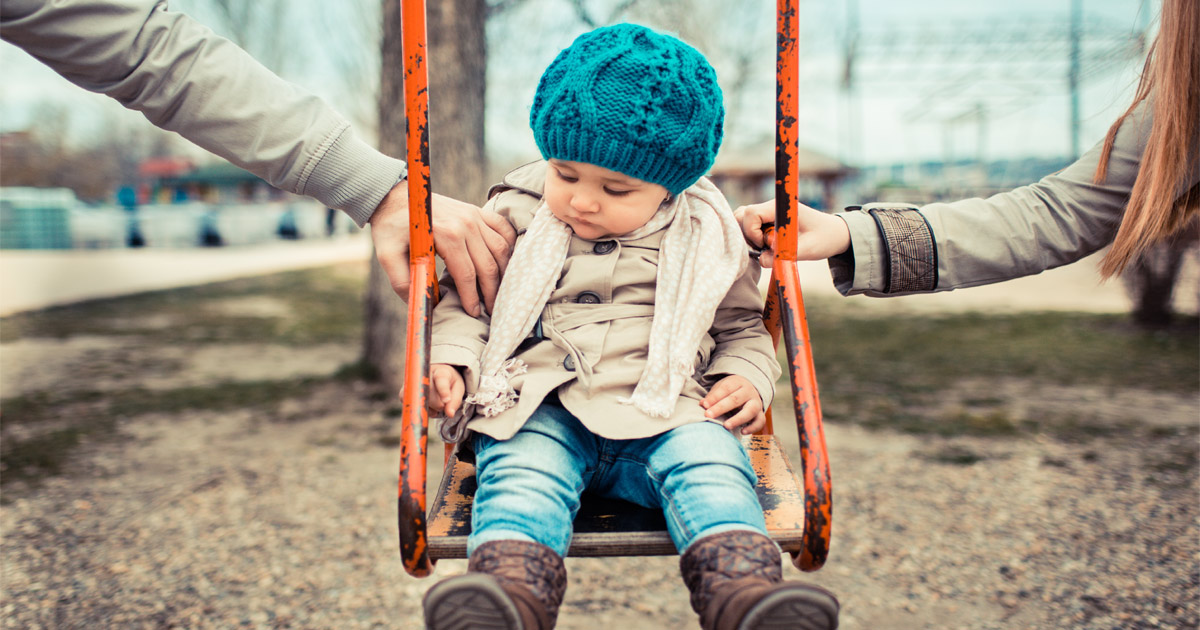How Can I Have a Child-Centered Divorce?

Divorce can be overwhelming and emotional, especially when children are involved. Even the most well-intentioned parents can get caught up in their own anxiety, grief, or anger and miss the pain and loss their children feel. There is a solution: a child-centered divorce.
A child-centered divorce is an approach used by parents to mitigate the damages of divorce and protect children from the worst effects of the divorce process. Even in the most contentious divorces, parents will agree they want what is best for their children. This makes for an excellent starting point for a child-centered divorce.
While there is no one approach to putting children first in a divorce, there are common beliefs and actions that skew toward success.
Avoid Court
A child-centered divorce is often quicker and less expensive because both parties agree to keep the divorce out of court. They can work out terms with a mediator or engage in a collaborative divorce process with their lawyers. Staying out of court avoids a “win-lose” situation. It also establishes a framework for further collaboration, as the parents work together to raise the children.
Temporary Custody
You should put temporary custody and support plans in writing and stick to them. A child does not need any more upset in their life when their parents are divorcing. Before the divorce is finalized, have a plan in writing for shared parenting, visitations, holidays, financial obligations, child pick-ups, and other events so there is no last-minute fighting or disappointment for the children.
Reduce Stress and Pressure
Parents who put their children first in a divorce are more focused, less stressed, and more intentional in their decisions. Having a shared goal, the welfare of their children, can make them more open to sharing responsibilities. They may be more willing to talk situations out, compromise on issues such as visitation, and keep focused on the children, not on feelings.
Ease Financial Tensions
When both parents look at what needs to happen financially in the best interest of their children, they will look more realistically and openly at financial obligations and abilities. They may make decisions that allow the child to live comparably to how they lived before and with the least economic insecurity. Being child-centered during financial discussions and negotiations can help everyone stay focused.
Focus on Family
When divorcing parents put children first, they commit to looking toward the future. They envision what their family will look like going forward and their family dynamic. They focus on keeping the family together, albeit under two roofs. They do not focus on revenge or placing blame.
Minimize the Adverse Effects
Studies show that children of divorcing parents may exhibit anxiety, lower self-esteem, and trust issues. A child-centered approach can help children cope with the harmful effects of divorce. It can help them understand that both parents have their best interests at heart and are working toward establishing a secure and inclusive future for them.
Strengthen Relationships
While a divorce takes a lot of time and attention from the parents, the focus should still be on the children. Spend as much time as possible with them. Continue with their extracurriculars and daily routines. Focus on your relationship with them, and reassure them of your continued support.
Be sure to cut them some slack if they act out or rebel during the divorce process. Use these instances as an opportunity to strengthen your relationship and reassure them of the future.
Model Good Behavior
It is essential for both parents to behave civilly and kindly in dealings with each other; no fighting, angry words, or physical encounters. When alone with the children, they should act equally maturely, which means no name-calling or degradation of the other parent. They should see their parents acting calmly, kindly, and confidently so they can feel reassured that everything will eventually be okay.
Be Honest and Open
Although children do not need to know every detail of the divorce, they will need help understanding why. If possible, both parents should participate in the conversation and ensure the children that the divorce is not their fault and that they will continue to be loved. Allow them to ask questions and to express their emotions. They need to know that their feelings are valid and heard. The divorcing parents may want to agree beforehand on what they will tell the children.
Consider Therapy
Even the most collaborative and child-centered divorces can still affect the children. Consider family counseling or individual therapy where a child psychologist can let your child speak freely without their parent overhearing. There are also parenting coaches and mediators that can help both parents and children.
What Is Collaborative Divorce?
Collaborative divorce is a specific process that provides couples with an alternative to divorce litigation or mediation. To be a good fit for the collaborative divorce process, the parties must be willing to be considerate of each other’s needs and issues. They will sign an agreement with their lawyers that says the parties will not engage in litigation and will address all relevant issues in a mutually beneficial manner, with the focus on problem-solving.
If experts are needed, the lawyers will call them in if they are trained to participate in the collaborative process. A mutually retained therapist is also engaged when necessary or helpful to assist the couple in staying on track.
While this process is not for everyone, it can be a successful alternative to traditional litigation or mediation. Couples should look for trained and certified divorce lawyers.
Marlton Divorce Lawyers at Goldstein & Mignogna, P.A. Help Clients Keep Their Divorces Centered on the Children
Divorce can be difficult for children, but we can help your divorce stay on track. Our Marlton divorce lawyers at Goldstein & Mignogna, P.A. can help keep your divorce collaborative. Call us at 856-890-9400 or contact us online to schedule an initial consultation. Located in Marlton, New Jersey, we serve clients throughout South Jersey, including Burlington County, Camden County, and Gloucester County.


